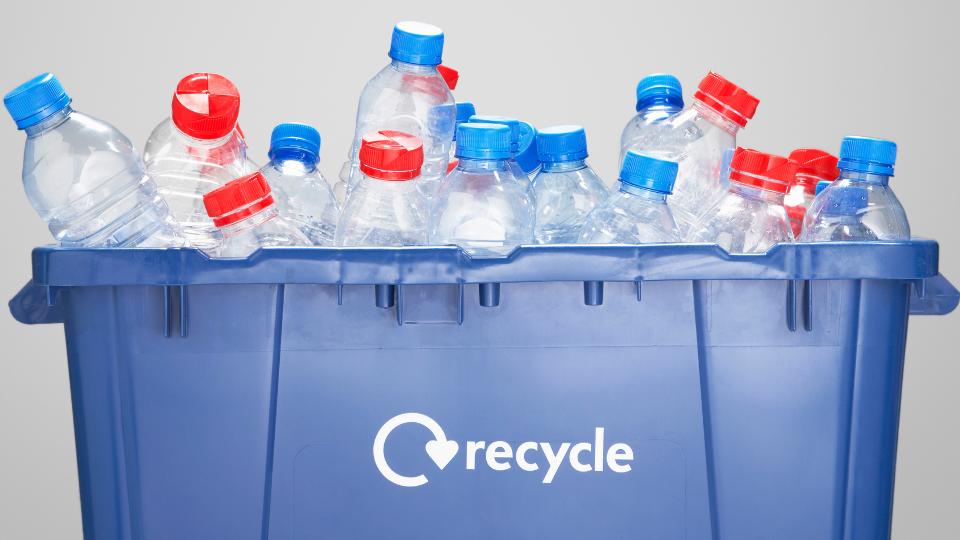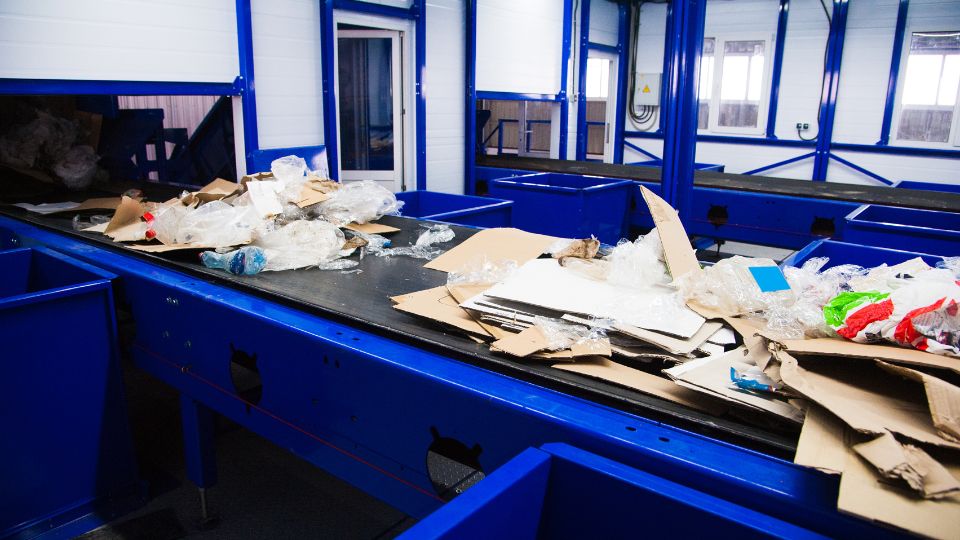
In today’s environmentally conscious world, businesses are increasingly expected to take responsibility for their waste management practices.
One area that’s gaining traction is dry mixed recycling (DMR).
Understanding how to effectively mduanage DMR not only helps businesses comply with regulations but also contributes to sustainability efforts.
Let’s delve into everything you need to know about DMR, from its definition to regulatory compliance and disposal methods.
Table of contents
- What is Dry Mixed Recycling?
- What Happens to Dry Mixed Recycling?
- What are the Benefits of Businesses Recycling?
- How to Manage Dry Mixed Recycling in Your Business
- Recycling Waste Laws and Regulations in the UK
- Facts & Statistics about Dry Mixed Recycling
- Conclusion
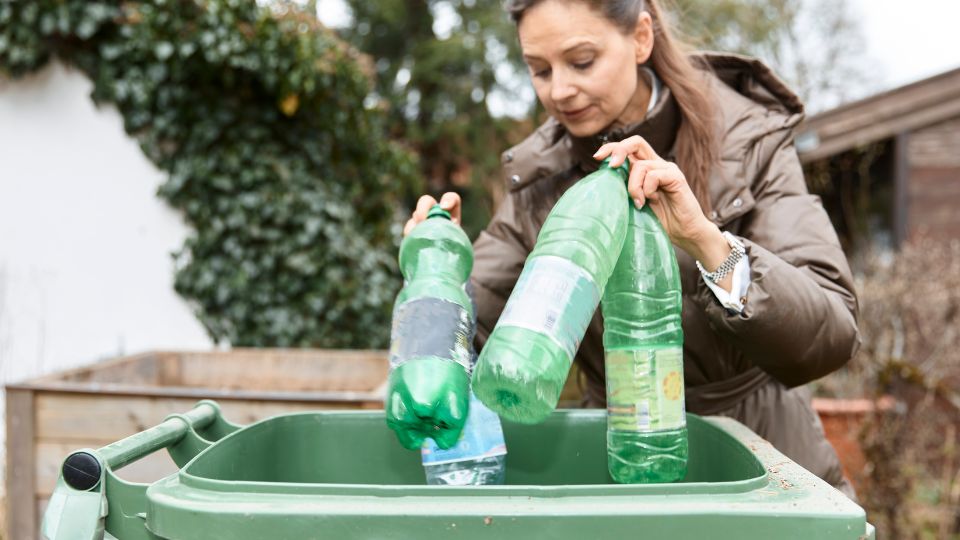
What is Dry Mixed Recycling?
Dry mixed recycling, also known as ‘DMR’ is any recyclable materials that need to be disposed of, this could include old milk bottles, takeaway containers or cardboard boxes.
Dry mixed recycling represents a significant shift in waste management practices, offering businesses a more sustainable alternative to traditional disposal methods.
Examples of Dry Mixed Recycling for Businesses
Increasing awareness about sustainability prompts businesses and individuals to recycle common items such as paper, cardboard, plastics, metals, glass, textiles, electronics, batteries, and ink cartridges.
Here are some common examples of dry mixed recycling items tend to produce:
Paper
- Office paper
- Newspaper
- Magazines
- Junk mail
- Cardboard boxes
Cardboard
- Shipping boxes
- Cereal boxes
- Cardboard packaging
Plastics
- Plastic bottles (PET and HDPE)
- Plastic containers (such as yoghurt and margarine containers)
- Plastic bags (check local recycling guidelines)
- Plastic packaging
Metals
- Aluminum cans
- Steel cans (soup cans, canned vegetables)
- Tin cans
- Aluminum foil and trays
Glass
- Glass bottles (clear, brown, green)
- Glass jars (jams, sauces)
- Beverage containers
E-Waste
- Computers
- Cell phones
- Printers
- Televisions
Does Dry Mixed Recycling Have to Be Clean?
Yes, your dry mixed recycling does have to be clean and dry.
It’s important to make sure that materials are not tainted with food or other substances, as this can cause contamination and make the recycling process less effective.
Waste collectors may refuse to take away contaminated dry mixed recycling.
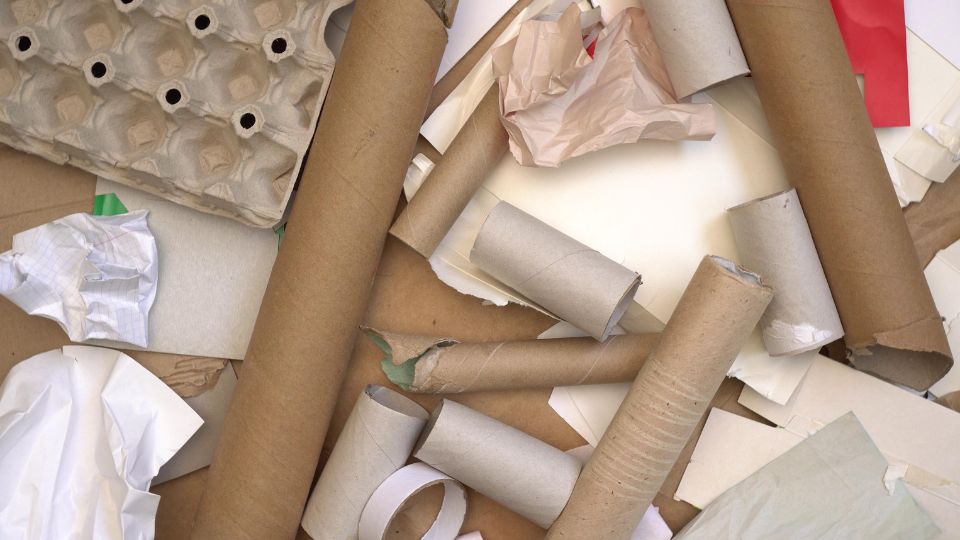
What Happens to Dry Mixed Recycling?
Understanding Dry Mixed Recycling (DMR) is pivotal in navigating sustainable waste management practices for businesses.
Let’s discuss what happens to dry mixed recycling after it’s collected:
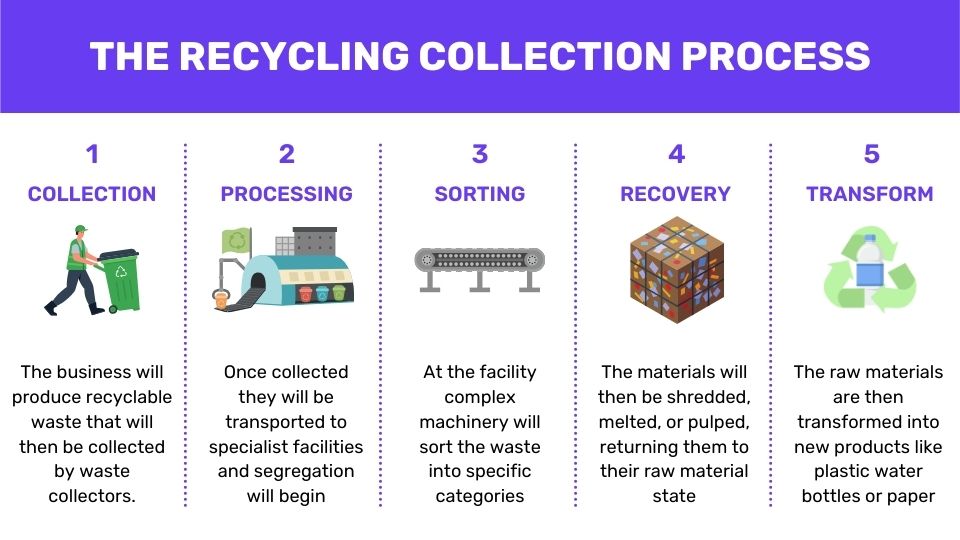
The Dry Mixed Recycling Collection Process
1. Collection
The business will produce a wide range of recyclable materials, including paper, cardboard, plastic containers, glass bottles, and metal cans.
These materials are typically collected together in a single recycling bin or container, simplifying the waste disposal process for businesses.
A waste collector will then collect the waste from the bin and take it away.
2. Processing
Once collected, the recyclable items are transported to specialised facilities equipped with advanced sorting technology.
These Material Recovery Facilities (MRFs) use a combination of manual sorting and automated machinery to separate different types of materials efficiently.
3. Sorting & Segregation
At the Material Recovery Facilities (MRFs), the dry mixed recycling undergoes a meticulous sorting process.
Conveyor belts, optical sensors, and magnets are employed to separate paper, cardboard, plastics, metals, and other materials into distinct streams.
This segregation ensures that each material can be processed and recycled effectively.
4. Resource Recovery
After sorting, the recyclable materials are baled or compacted for transportation to recycling facilities.
Here, they undergo further processing, such as shredding, melting, or pulping, to transform them into raw materials for manufacturing new products.
5. Transformation
The recyclables are transformed into raw materials that can be used in the manufacturing of new products.
For instance, recycled paper and cardboard can be turned into new paper products, while recycled plastics can be transformed into a variety of items such as bottles, containers, and packaging.
By closing the loop through recycling, businesses contribute to the circular economy, reducing the need for virgin materials and conserving valuable resources.
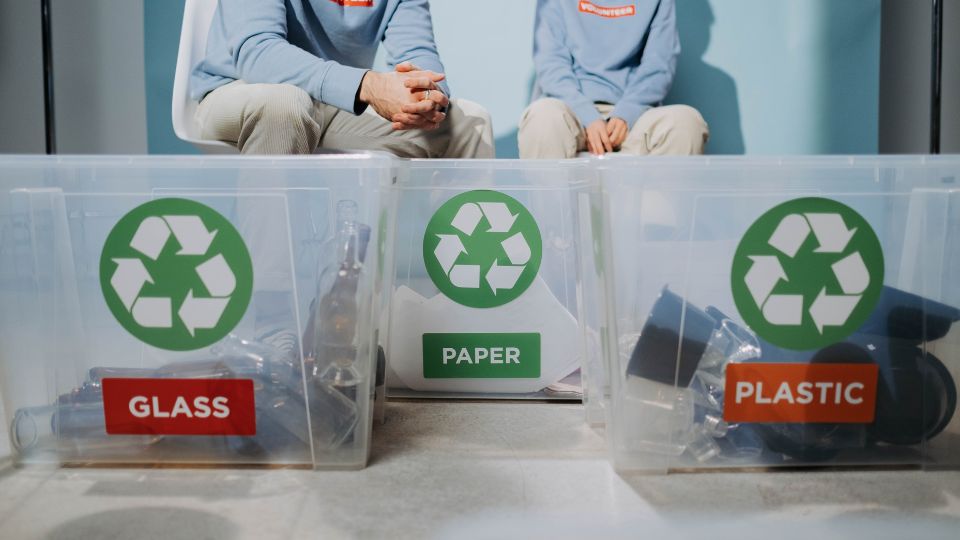
What are the Benefits of Businesses Recycling?
In today’s rapidly evolving business landscape, sustainability has emerged as a critical priority for businesses across industries.
As businesses navigate the complex interplay of economic, environmental, and social factors, recycling stands out as a fundamental practice with far-reaching benefits.
From cost savings to enhanced brand reputation and environmental responsibility, the advantages of recycling extend beyond just waste management.
Cost Savings
Implementing a DMR program can lead to significant cost savings for businesses.
By reducing waste disposal fees and potentially generating revenue from the sale of recyclable materials, companies can improve their bottom line while supporting sustainable practices.
Reputation & Public Relations
Consumers are increasingly mindful of environmental issues and expect businesses to demonstrate their commitment to sustainability.
By prioritising recycling processes and other eco-friendly initiatives, companies can enhance their brand reputation, attract environmentally conscious customers, and differentiate themselves in the market.
Employee Engagement
Engaging employees in dry mixed recycling initiatives creates a culture of environmental responsibility within the workplace.
Providing education, training, and incentives all encourage staff participation and empower them to contribute to the company’s sustainability goals.
Socio-Economic & Environmental Responsibility
By diverting recyclable materials from landfills and promoting resource conservation, businesses play a vital role in mitigating the environmental impacts of waste disposal.
By prioritising environmental responsibility, businesses can align their operations with broader sustainability goals and contribute to a healthier, more resilient environment.
In summary, dry mixed recycling offers businesses a practical and environmentally responsible solution for managing recyclable waste. By embracing DMR, companies can reduce their environmental footprint, comply with regulations, and reap financial benefits while contributing to a more sustainable future.
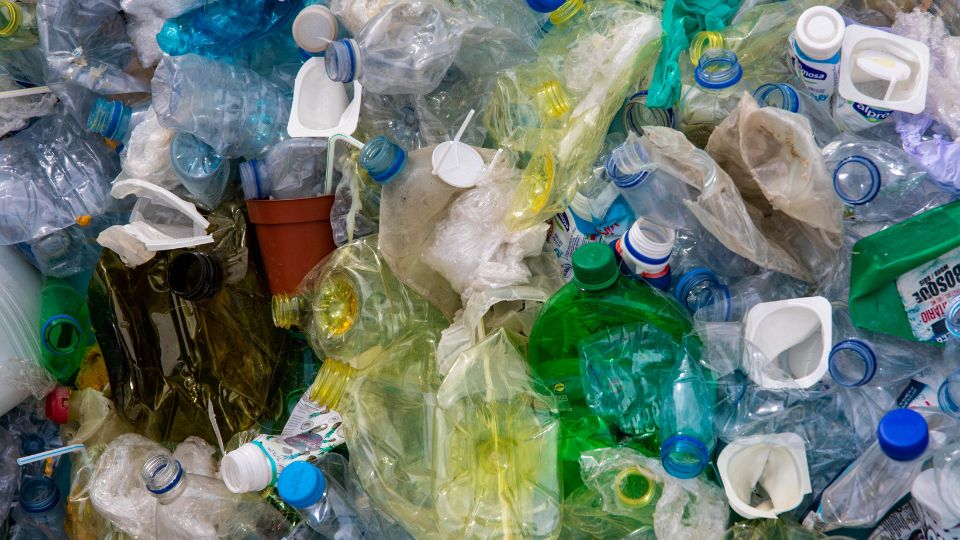
How to Manage Dry Mixed Recycling in Your Business
Efficiently managing dry mixed recycling (DMR) in your business is crucial for both environmental sustainability and regulatory compliance.
Here are some key strategies to effectively handle recycling within your business:
Implement a Recycling Programme
Making an effective recycling programme for your business is very important.
Start by raising awareness among employees about the importance of recycling, and the significance of their role in the process.
Provide clear guidelines on what materials are recyclable and how they should be sorted.
Use prominently labelled bins or containers designated for different types of recyclables, making it easy for employees to segregate their waste.
Consider implementing incentives or recognition programs to motivate participation and reward sustainable behaviours.
Top Tip: Colour code your bins so your employees don’t get confused! For example, make your general waste bin black and your recycling bin green.
Work with a Waste Management Provider
Selecting the right waste management partner is essential for seamless dry mixed recycling collection and processing.
Choose a reputable provider with expertise in recycling handling and a track record of environmental compliance.
Work closely with the waste management company to tailor their services to suit your business’s specific requirements.
This may include arranging regular pickups of recyclables, ensuring timely processing at specialised facilities, and maintaining transparent communication channels for feedback and inquiries.
Conduct Regular Audits & Reviews
Periodic waste audits are incredibly valuable for evaluating the effectiveness of your recycling programme and identifying areas for improvement.
Schedule regular audits to assess the quantity and composition of DMR generated by your business.
Analyse the data collected to pinpoint any inefficiencies or opportunities for optimisation.
Are there recurring challenges with contamination or improper sorting? Are there additional materials that could be targeted for recycling?
Use the insights gained from these audits to fine-tune your recycling processes and enhance overall performance.
By implementing these proactive strategies, your business can streamline its DMR management practices, minimise environmental impact, and contribute to a more sustainable future.
Through continuous improvement and collaboration with stakeholders, you can maximise the effectiveness of your recycling efforts and set a positive example for others in your industry.
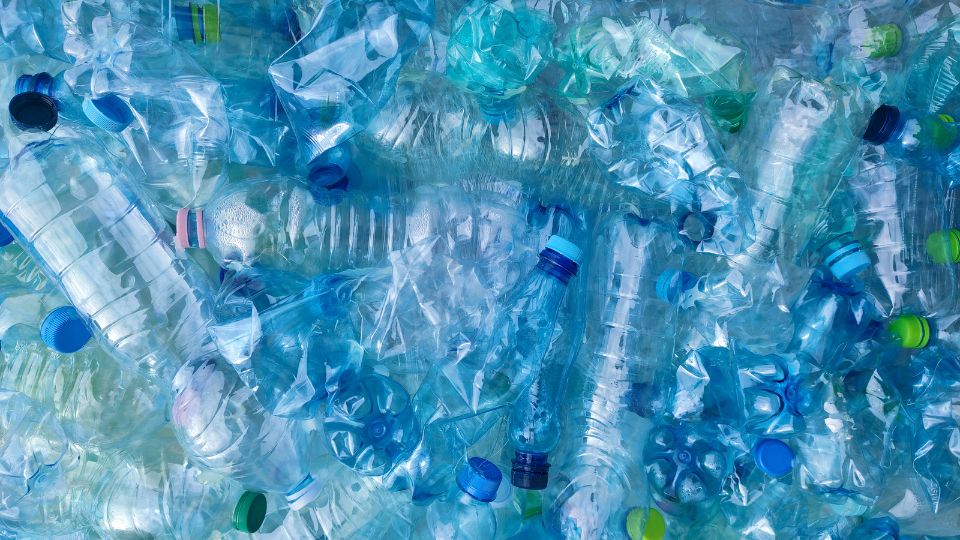
Recycling Waste Laws and Regulations in the UK
As a business owner, it’s important you’re aware of relevant legislation affecting your business, including waste management.
Laws have become stricter in recent years, putting more pressure on businesses to become environmentally conscious.
In addition to the Duty of Care, Waste Hierarchy, and Producer Responsibility Obligations outlined previously, several other laws and regulations govern waste management practices in the UK. Understanding these regulations is paramount for businesses seeking to establish effective recycling programs and minimise their environmental footprint.
Duty of Care
The Duty of Care, established under the Environmental Protection Act 1990, imposes a legal obligation on businesses operating in the UK to manage their waste responsibly.
This duty encompasses the entire waste management process, from its generation to its final disposal.
Businesses are required to take all necessary measures to ensure that their waste is handled, transported, and disposed of in a manner that prevents harm to human health and the environment.
Failure to adhere to these regulations can result in severe penalties, fines, or legal consequences.
Did you know that soon you’ll have to track all waste in mandatory digital waste tracking software? Check it out in our dedicated blog!
Waste Hierarchy
The Waste Hierarchy, established by the Waste Regulations 2011, provides a framework for prioritising waste management practices based on their environmental impact.
At the top of the hierarchy is waste prevention, which emphasises the importance of reducing waste generation at the source.
Following waste prevention, the hierarchy prioritises reuse, recycling, energy recovery, and disposal as a last resort.
By adhering to the waste hierarchy, businesses are encouraged to prioritise sustainable waste management practices that minimise environmental impact and conserve resources.
Emphasising recycling and resource recovery over disposal helps businesses mitigate their carbon footprint, conserve natural resources, and contribute to a more circular economy.
Producer Responsibility Obligations
The Producer Responsibility Obligations, as outlined in the Packaging Waste Regulations 2007, place specific responsibilities on businesses involved in the handling of packaging materials.
Read more about recycling packaging peanuts in our dedicated article.
Producers, importers, and sellers of packaging are required to take responsibility for the recovery and recycling of specified amounts of packaging waste.
This entails financing and managing the end-of-life disposal and recycling of packaging materials, ensuring compliance with recycling targets set by regulatory authorities.
By implementing effective packaging waste management strategies, businesses can minimise their environmental impact.
Landfill Tax Regulations
The Landfill Tax Regulations 1996 impose a tax on the disposal of waste at landfill sites, with the aim of discouraging landfill use and promoting alternative waste management methods.
Businesses must be aware of the applicable tax rates and exemptions when disposing of waste to landfill and consider more sustainable disposal options to mitigate tax liabilities.
Hazardous Waste Regulations:
The Hazardous Waste Regulations 2005 govern the identification, handling, and disposal of hazardous waste.
Businesses that generate, store, or transport hazardous waste must adhere to strict regulatory requirements, including obtaining appropriate permits, ensuring safe storage and handling practices, and using authorised carriers for transportation.
Extended Producer Responsibility (EPR) Schemes:
EPR schemes place responsibility on producers of certain products and packaging to finance and manage their end-of-life disposal and recycling.
These schemes aim to shift the financial and operational burden of waste management from taxpayers to product manufacturers and encourage the adoption of more sustainable product design and packaging practices.
Single-Use Plastic (SUP) Regulations:
Introduced as part of the EU’s Single-Use Plastics Directive, the SUP Regulations aim to reduce the consumption of single-use plastics and promote the use of more sustainable alternatives.
Businesses must comply with restrictions on the sale and distribution of certain single-use plastic products and implement measures to minimise plastic waste generation and promote recycling.
Waste Electrical and Electronic Equipment (WEEE) Regulations:
The WEEE Regulations govern the collection, treatment, recycling, and disposal of electrical and electronic equipment waste.
Businesses that produce, sell, or dispose of WEEE must comply with registration, reporting, and recycling targets, ensuring the proper management of electronic waste and the recovery of valuable resources.
By staying informed about these laws and regulations, UK business owners can proactively address their waste management responsibilities, implement effective recycling strategies, and contribute to a more sustainable future.
Compliance with legal requirements not only mitigates risks of non-compliance but also fosters a positive reputation for environmental stewardship and corporate citizenship.
Facts & Statistics about Dry Mixed Recycling
In today’s era of heightened environmental awareness, recycling has emerged as a crucial practice in mitigating waste, conserving resources, and promoting sustainability.
Understanding these facts and figures underscores the importance of recycling in shaping a greener, more sustainable future for generations to come.
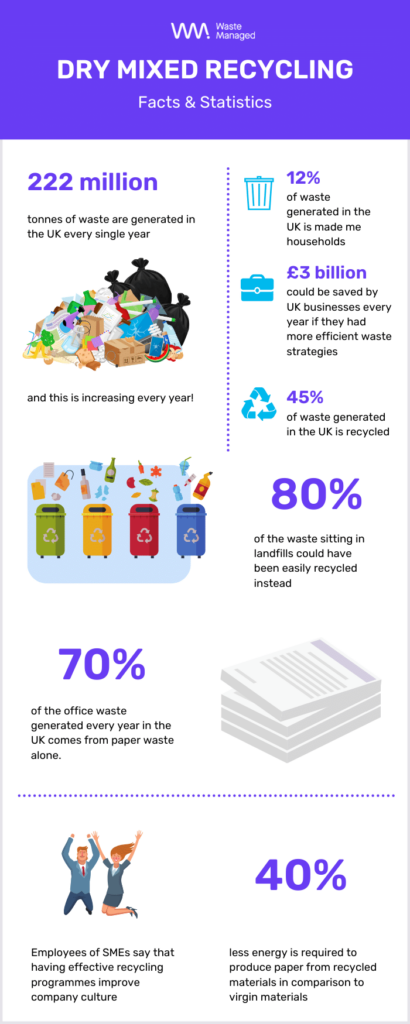
Dry Mixed Recycling Facts:
- According to WRAP (Waste and Resources Action Programme), recycling rates in the UK reached 45.5% in 2019, with an increasing emphasis on commercial and industrial recycling efforts.
- The UK generates over 200 million tonnes of waste annually, highlighting the urgency for sustainable waste management practices like recycling.
- Businesses in the UK could save up to £3 billion every year by adopting more efficient waste management strategies, including dry mixed recycling programmes.
- 80% of the waste in landfills could have been recycled.
- Around 70% of office waste that ends up in landfill consists of paper products that could have been recycled including paper printouts, and cardboard waste.
- Employees of small to medium size businesses (SMEs) say that having a structured recycling programme boosts company culture.
- Only 12% of the waste generated in the UK comes from households.
- It takes 40% less energy to create recycled paper from paper pulp than it does from virgin materials.
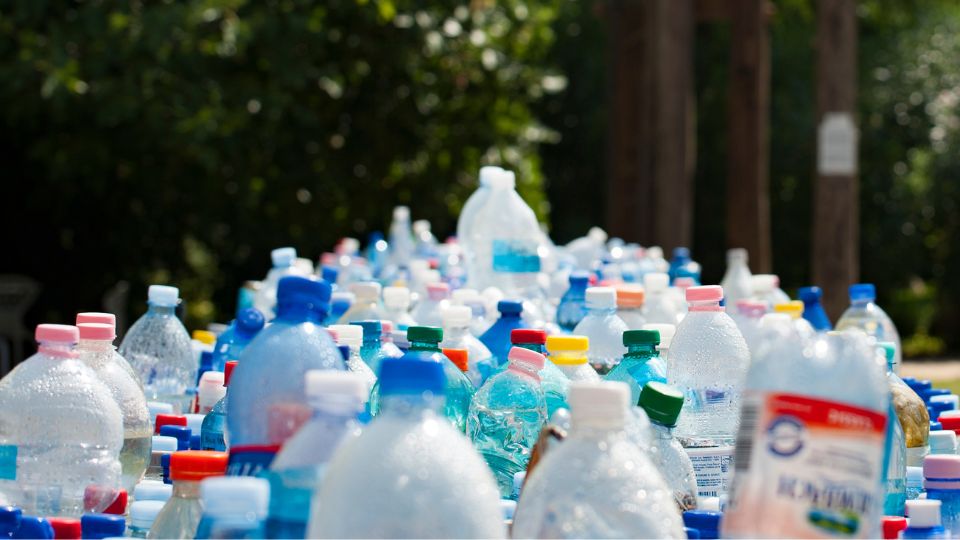
Conclusion
By prioritising dry mixed recycling (DMR) practices, businesses demonstrate a proactive commitment to environmental responsibility while concurrently meeting their legal obligations.
By diverting recyclable materials from landfills and opting for DMR, companies significantly reduce their carbon footprint and contribute to a greener, more sustainable future.
Embracing DMR initiatives isn’t just about doing good for the planet; it also brings real benefits to businesses’ finances.
Through effective waste management strategies, such as recycling, businesses can reduce waste disposal costs and even generate revenue from the sale of recyclable materials.
By embracing DMR, businesses can align their operations with sustainability objectives, create a positive brand reputation, and actively contribute to building a more resilient and eco-conscious society for future generations.


